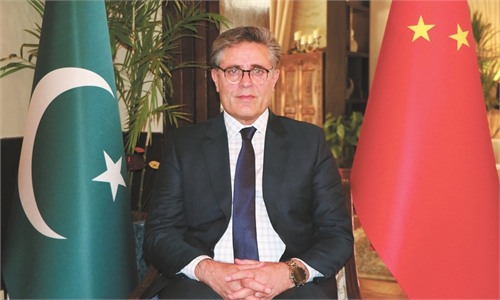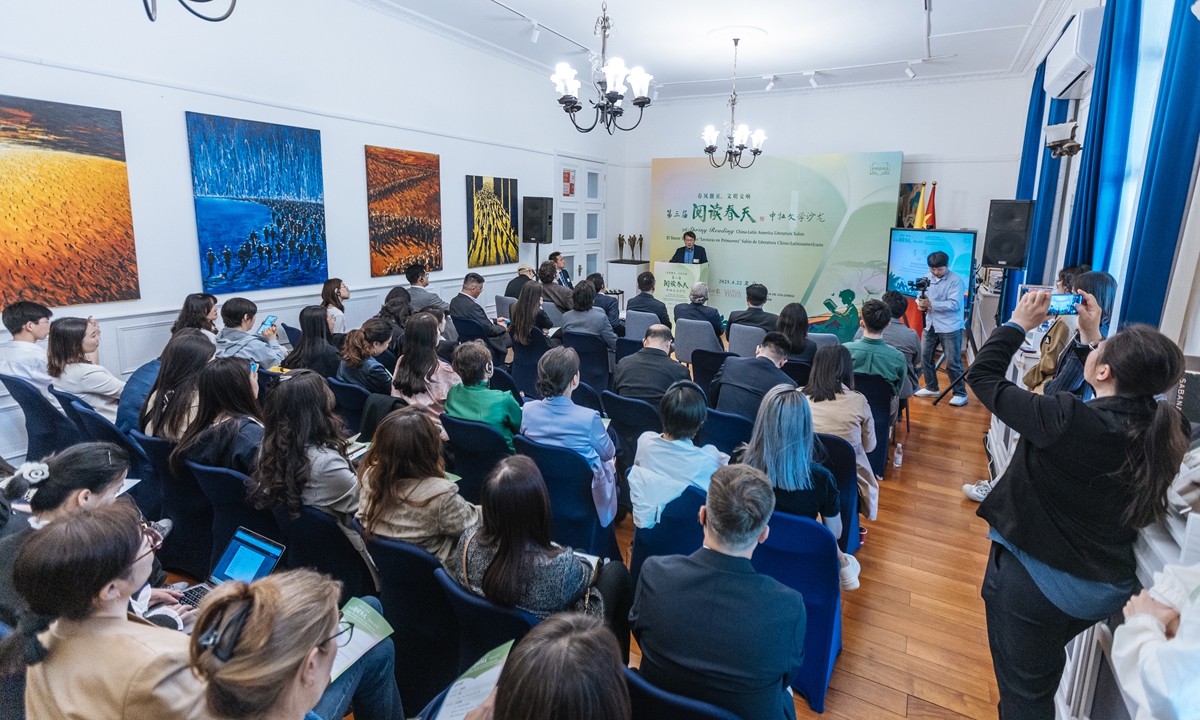
Photo: Li Hao/GT
"Spring unfurls pages, civilizations symphonize together." On the occasion of the 30th World Book Day, the Global Times and the Embassy of Colombia in Beijing hosted the "Spring Reading" - China-Latin America Literature Salon on Tuesday at the hall of the Embassy, igniting a literature dialogue and journey of mutual learning between the civilizations of China and Latin America.
Bai Long, deputy editor-in-chief of the Global Times, said at the opening speech that though China and Latin America are separated by the vast Pacific Ocean, literature serves as an ark that transcends mountains and seas.
The interaction between Chinese and Latin American literature is a two-way expressway.
The Global Times has consistently been both a witness to and a promoter of this two-way exchange. From commemorating the 125th anniversary of Jorge Luis Borges' birth to supporting the screen adaptation of One Hundred Years of Solitude, the Global Times has provided commentary and coverage, Bai noted, saying, "Through comprehensive media reporting, we have built a bridge for communication among Global South countries."
Sergio Cabrera, ambassador of Colombia to China, said, "The people of both China and Colombia possess the spirit of entrepreneurship, a sense of unity, and an enterprising character, which serve as the wellspring of strength propelling the two countries toward common prosperity. Despite being separated by vast oceans, through exchanges in various fields such as literature, art, dance, and sports, the two sides have continuously transcended geographical barriers."
"Cultural symbols such as Gabriel García Márquez's magical realist literature, Fernando Botero's sculpture and painting art, and Shakira's dynamic music have all received widespread resonance in China," the ambassador said.
During the salon, Santiago Gamboa, writer and minister counselor of the Embassy of Colombia in China; Zhao Zhenjiang, professor at Peking University; and Li Er, chairman of the Beijing Writers Association and winner of the Mao Dun Literature Prize; talked about the impact Latin American literature has had on the narrative style of contemporary Chinese literature and their own personal writing.
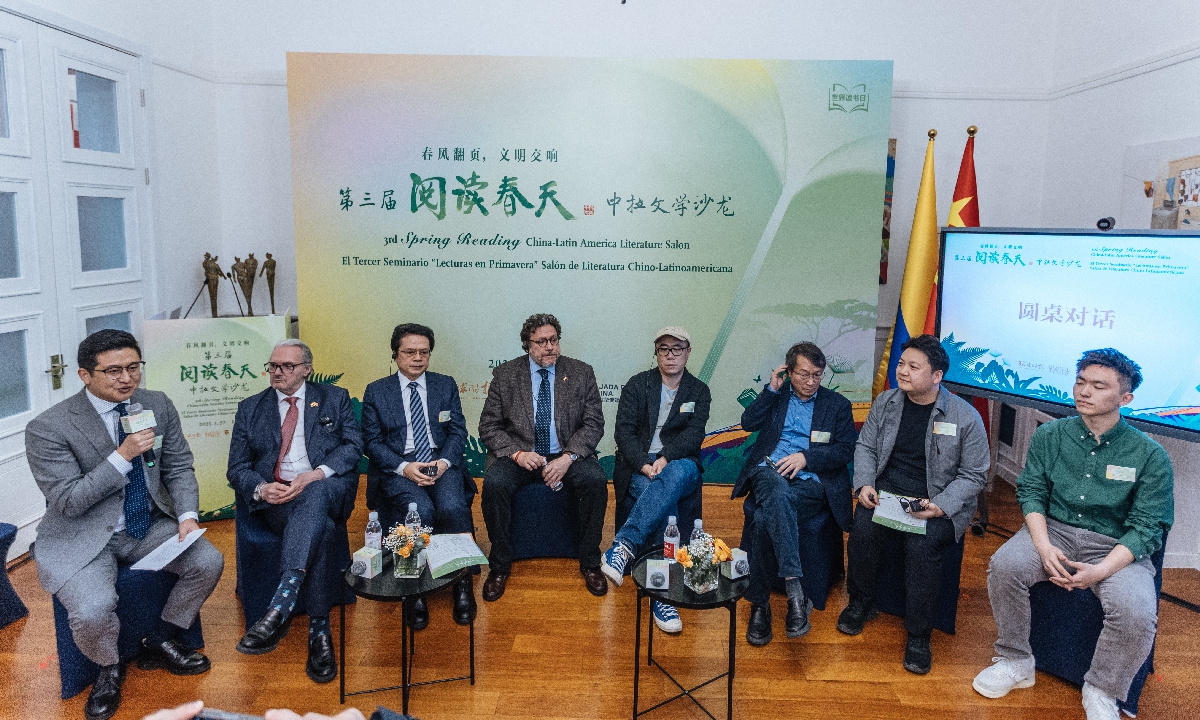
Dignitaries and guests attend the roundtable discussions at the event on April 22, 2025. Photos: Li Hao/GT
At the following roundtable discussion, Chen Yan, a member of the 14th National Committee of the Chinese People's Political Consultative Conference (CPPCC) and vice chairman of the China Writers Association; Shi Yifeng, Lu Xun Literature Prize winner and vice chairman of the Beijing Writers Association; Li Keming, a national-level inheritor of the intangible cultural heritage of Ru porcelain; and a student representative shared their insights on Latin American literature. Shahbaz Khan, director of the UNESCO Multisectoral Regional Office for East Asia, sent a congratulatory video.The event was inspired by the "My Reading Life" essay contest that the Global Times English edition launched in early 2023 to encourage students to write about and share their reading experiences. Since 2023, the Global Times has hosted three offline events featuring reading and book sharing.
To encourage more young people from China and Latin America to connect through the bridge of literature, the event selected two outstanding representatives from among the many young enthusiasts of Latin American literature and awarded them the title of "China-Latin America Literary Ambassadors."
Li Zeyi, a student from Shenyang who was named the young representative, said "My overall impression of One Hundred Years of Solitude was that it felt truly magical. The flow of the story kept pushing me forward, urging me to follow the plot as it unfolded, page after page."
At the same time, the Global Times launched a new initiative for essay submissions. This initiative invites international students from diverse countries and cultural backgrounds to share their own stories of China.
These stories may capture the rapid development between urban and rural areas witnessed from a high-speed train, or perhaps the ancient designs on relics observed in a museum. Through this essay series, we hope international students will record and celebrate the "Charming China" they have come to know.
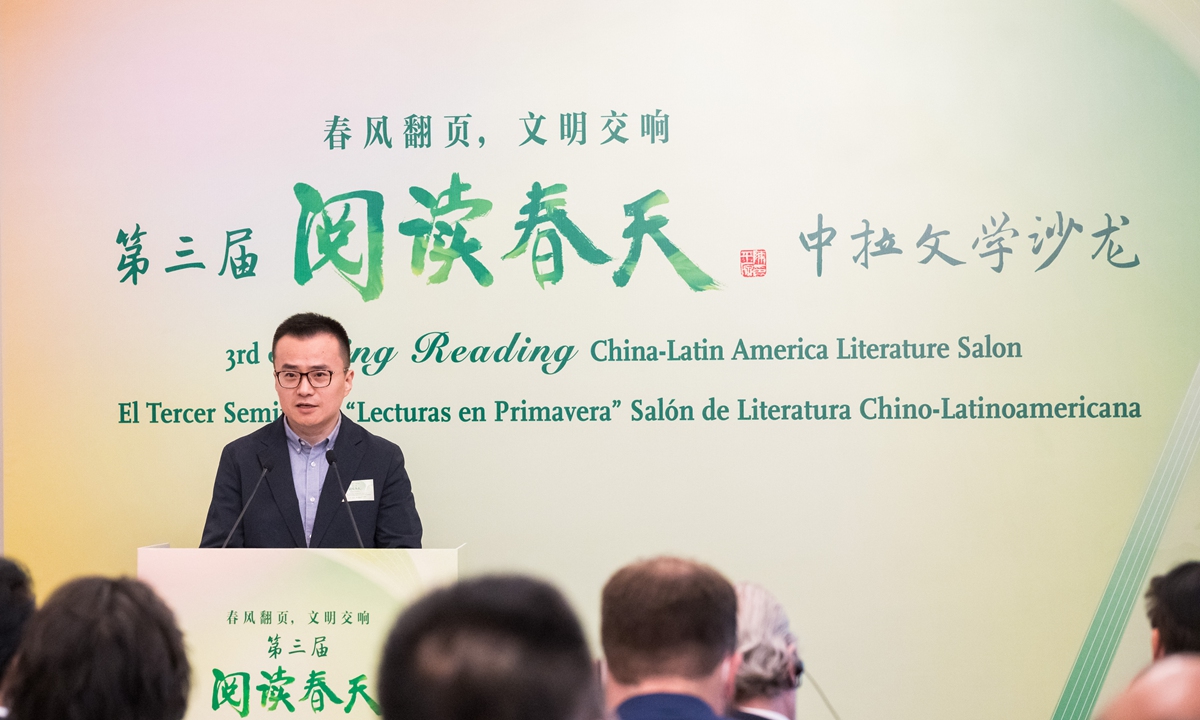
Bai Long, deputy editor-in-chief of the Global Times Photo: Chen Tao/GT
Bai Long, deputy editor-in-chief of the Global TimesIf the world is an unfinished book, then each nation is a unique chapter within it. At a time when economic globalization faces headwinds, reading should more than ever serve as a cultural bridge connecting the world. Books remind us that - whether it is the morning light over the Amazon rainforest or the misty rains of southern China - humanity's longing for a better life is universally shared.
May today's gathering inspire deeper literary exchange between China and Latin America, and may reading become our timeless common language, lighting the way toward a life we all cherish.
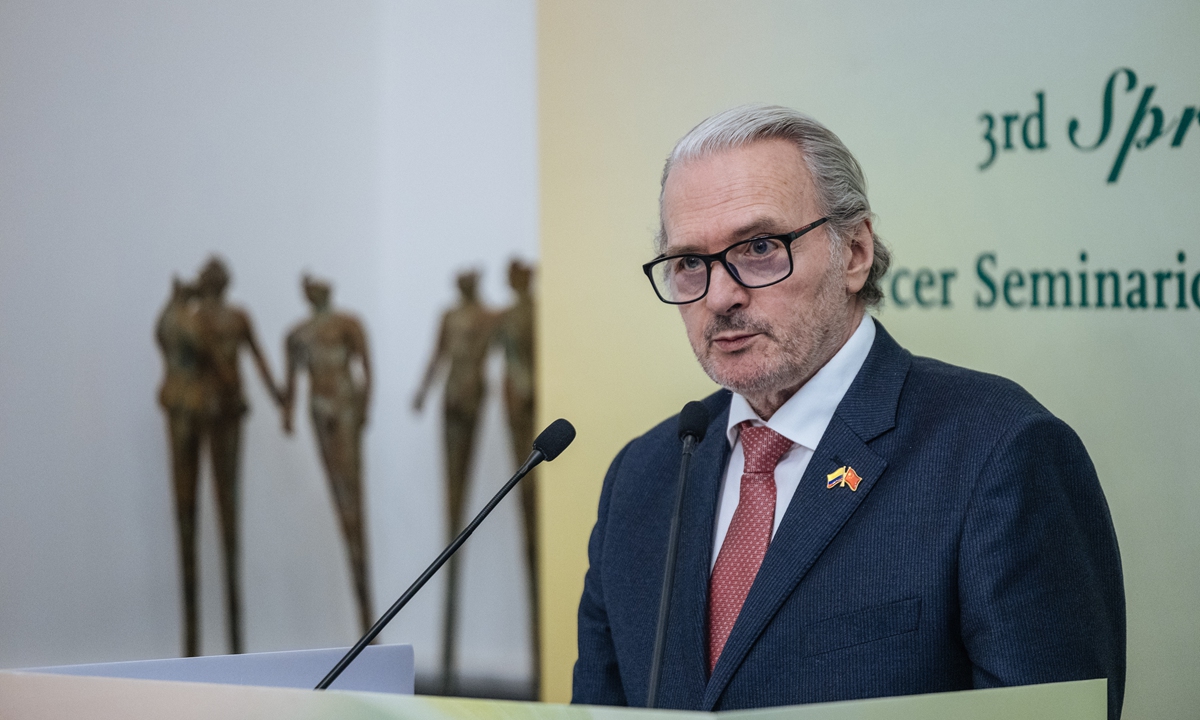
Sergio Cabrera, ambassador of Colombia to China Photo: Li Hao/GT
Sergio Cabrera, ambassador of Colombia to ChinaWhat brings us together today is culture - specifically, literature, which reflects the spirit and soul of a nation. In literature, we find the true face, the hidden history of individuals whose stories shape the identity of a country.
Colombian literature is rich and diverse, and has been widely translated into Chinese. Classic works such as The Vortex by José Eustasio Rivera were quickly translated and well received by Chinese readers. Of course, the works of Gabriel García Márquez, Álvaro Mutis, and many others are also widely known and celebrated.

Shahbaz Khan, director of the UNESCO Regional Office for East Asia Photo: Courtesy of the UNESCO
Shahbaz Khan, director of the UNESCO Regional Office for East AsiaToday is a fast-paced world. Reading remains a timeless and essential activity. It is not only a means of acquiring knowledge, but also a way to broaden our horizons and reach our minds, enhance our understanding of the world around us.
Reading allows us to step into the shoes of different characters, experience diverse cultures and explore various perspectives. It fosters critical thinking, creativity and empathy, enabling us to better navigate the complexities of life. Reading has the power to inspire and to challenge.
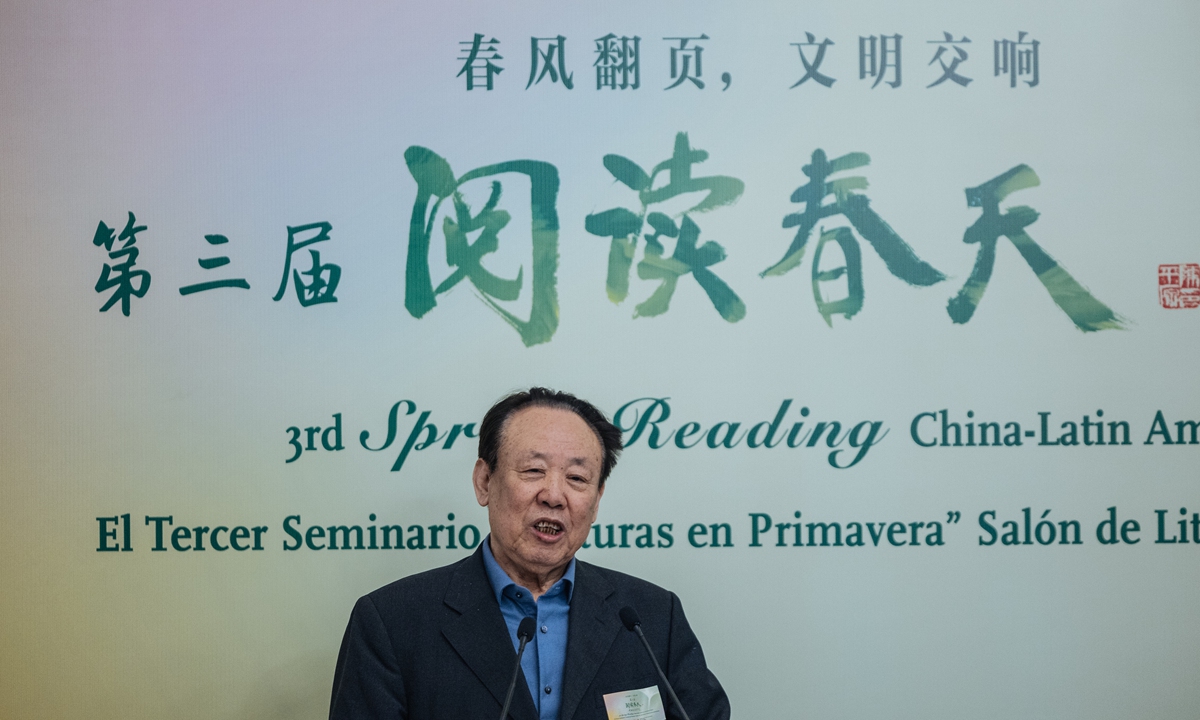
Zhao Zhenjiang, Spanish language professor at Peking University Photo: Li Hao/GT
Zhao Zhenjiang, Spanish language professor at Peking UniversitySpanish-language poetry from Latin America has been well-received among Chinese readers, especially poets, and has had a broad and profound influence on them.
The Qinghai Lake Poetry Festival in Northwest China's Qinghai Province features a Poetry Square with statues inspired by famous epics from both China and abroad.
Among them is one notable figure: Martín Fierro from the epic Argentine poem, showing the deep influence Spanish-language poetry from Latin America has had on China.
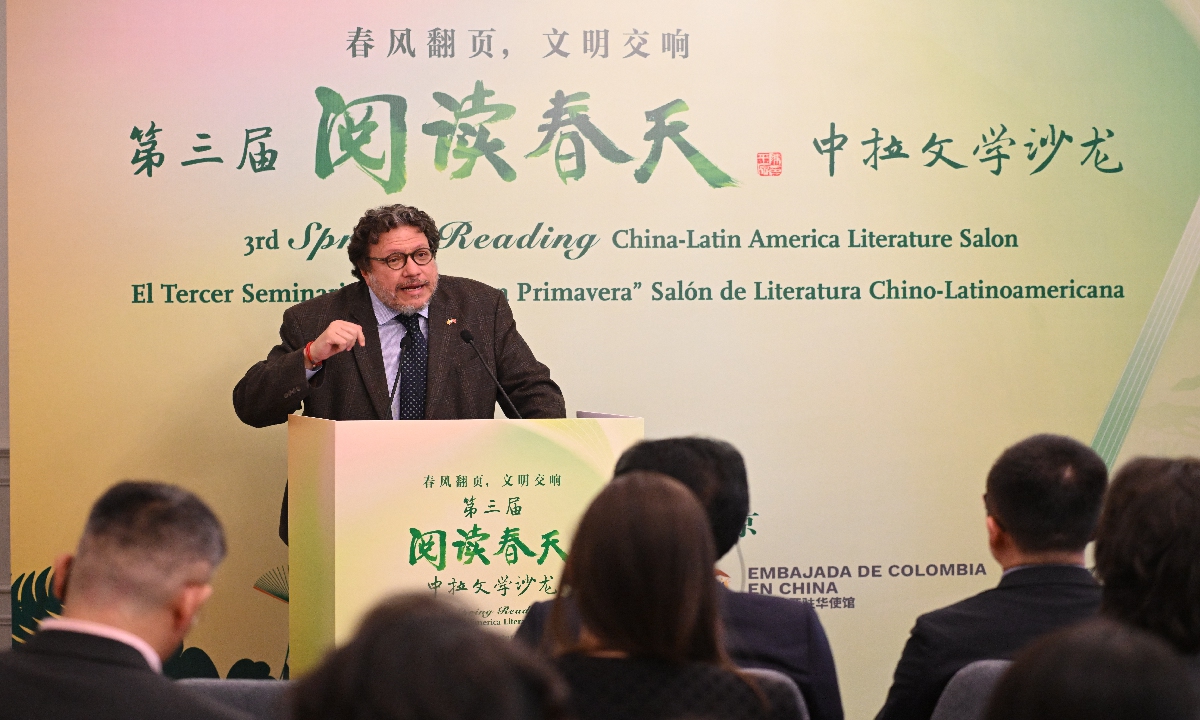
Santiago Gamboa, writer, minister counselor of the Embassy of Colombia in China Photo: Chen Tao/GT
Santiago Gamboa, writer, minister counselor of the Embassy of Colombia in ChinaNo matter which country you're from, you'll be drawn to great works of literature. For example, I really enjoy Mo Yan's Red Sorghum. To me, it celebrates human dignity, independence, and the deep desire for freedom.
Literature, no matter which country it comes from, teaches us a great deal. By reading about others' experiences, we learn valuable lessons and discover paths forward, ways to connect and communicate. The more we read each other, the closer we'll feel.
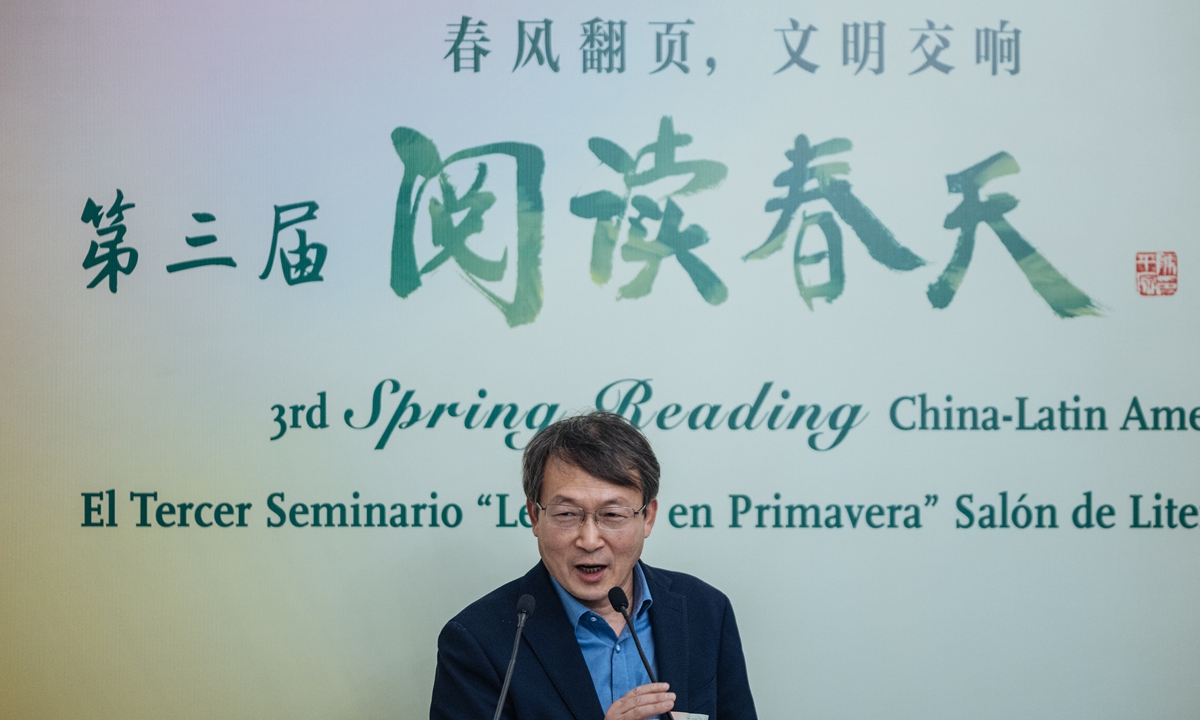
Li Er, winner of the Mao Dun Literature Prize, chairman of the Beijing Writers Association Photo: Li Hao/GT
Li Er, winner of the Mao Dun Literature Prize, chairman of the Beijing Writers AssociationWhen we read a foreign writer's works, it's not about becoming that writer. Gabriel García Márquez's influence didn't turn Mo Yan into another García Márquez.
It helped Mo Yan become an ordinary person of 21st-century China in his own unique way. The greatest impact of foreign literature on Chinese writers is that it helps them better discover themselves.
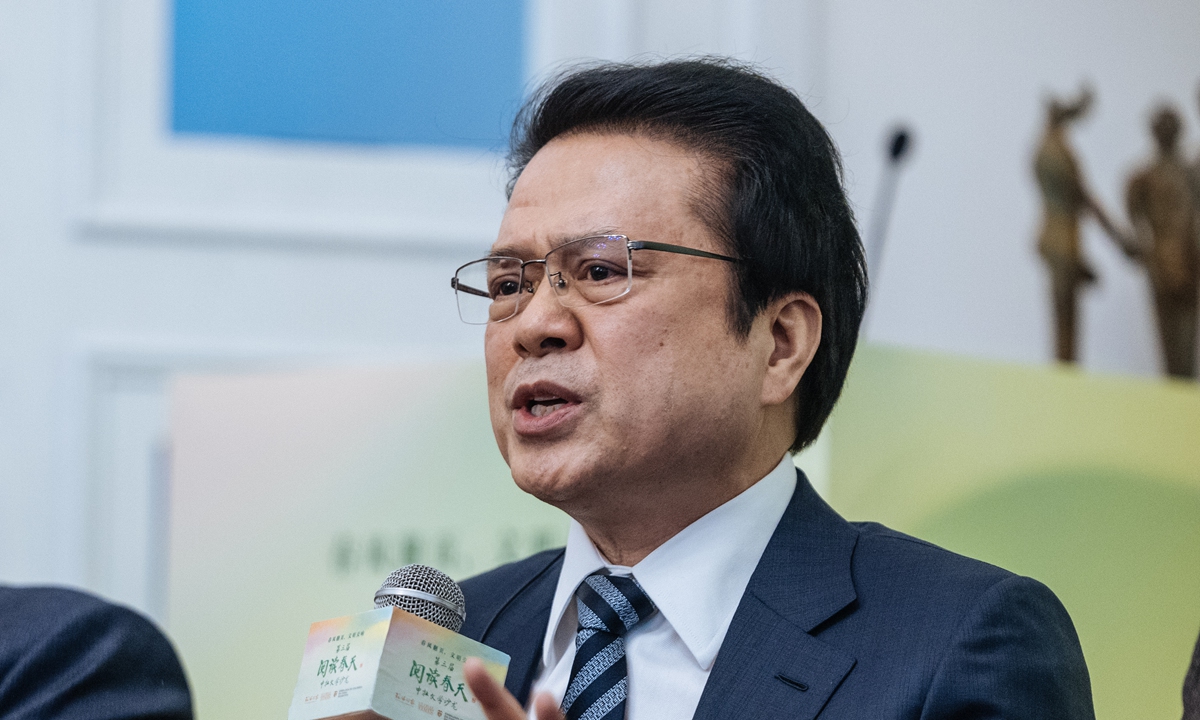
Chen Yan, a member of the 14th National Committee of the CPPCC and vice chairman of the China Writers Association Photo: Li Hao/GT
Chen Yan, a member of the 14th National Committee of the CPPCC and vice chairman of the China Writers AssociationI once marked over a hundred references to Chinese cultural elements in a book by Jorge Luis Borges. He wrote about Zhuangzi, the 64 hexagrams, and Four Great Classical Novels of Chinese literature. He often used "mirrors" as imagery - something also found in Dream of the Red Chamber. He even wrote a short story called The Widow of Zheng, which is set in China.
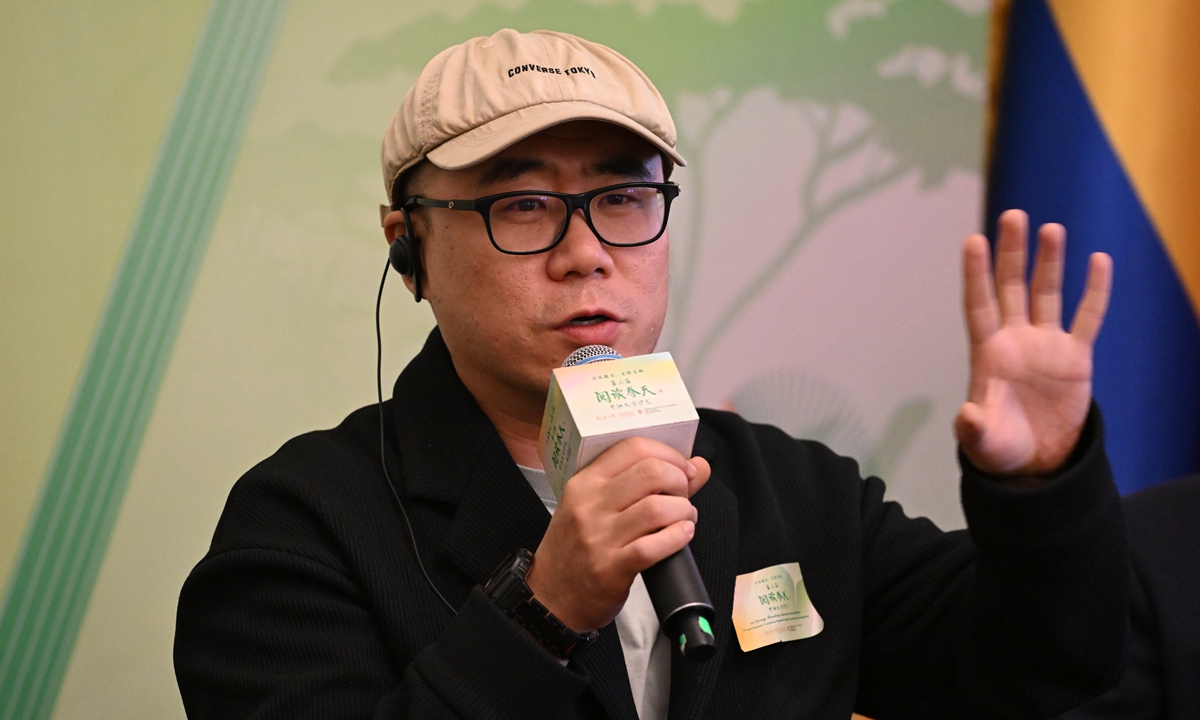
Shi Yifeng, Lu Xun Literature Prize winner and vice chairman of the Beijing Writers Association Photo: Chen Tao/GT
Shi Yifeng, Lu Xun Literature Prize winner and vice chairman of the Beijing Writers AssociationAt the end of the day, literature is still rooted in reality. You can see it as a dream within a dream, but ultimately, it must express one's perspective on the real world. For China and Latin America to achieve literary exchanges and mutual understanding, there must be a shared concern for reality.
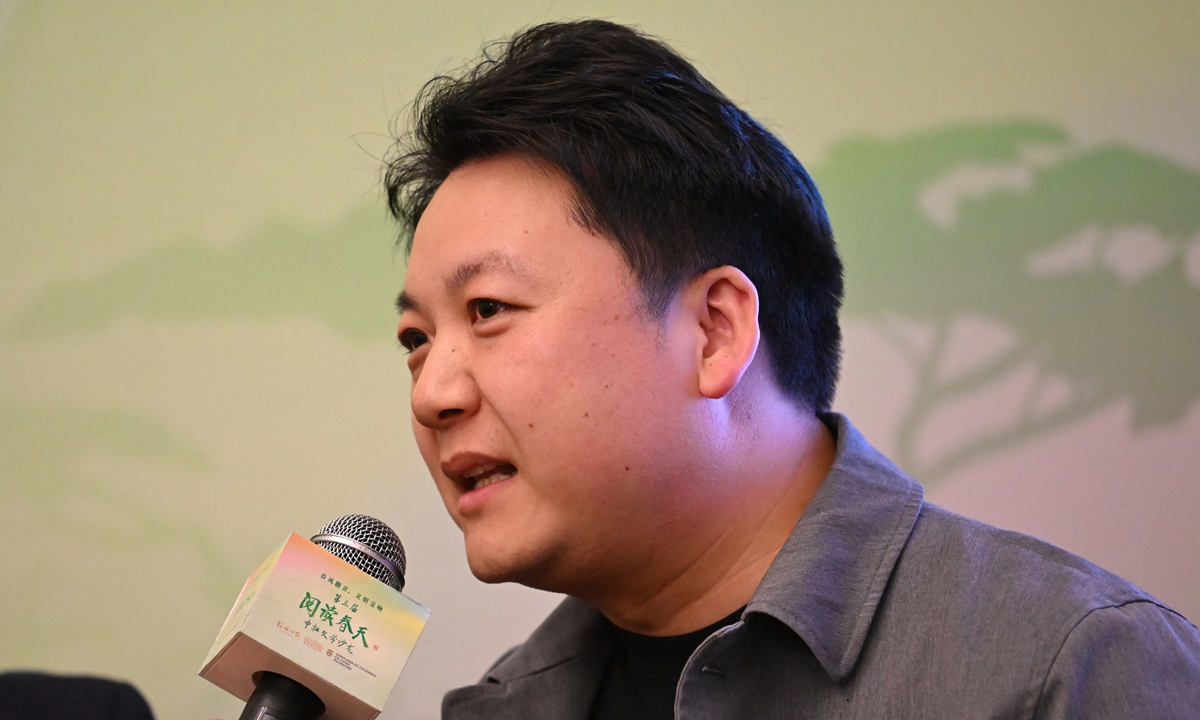
Li Keming, a national-level inheritor of the intangible cultural heritage of Ru porcelain Photo: Chen Tao/GT
Li Keming, a national-level inheritor of the intangible cultural heritage of Ru porcelainI found out that making ceramics actually requires a full understanding of culture and art. During this time I also developed an interest in Latin literature. I also look forward to meeting with more artists or literary authors for cultural exchanges.
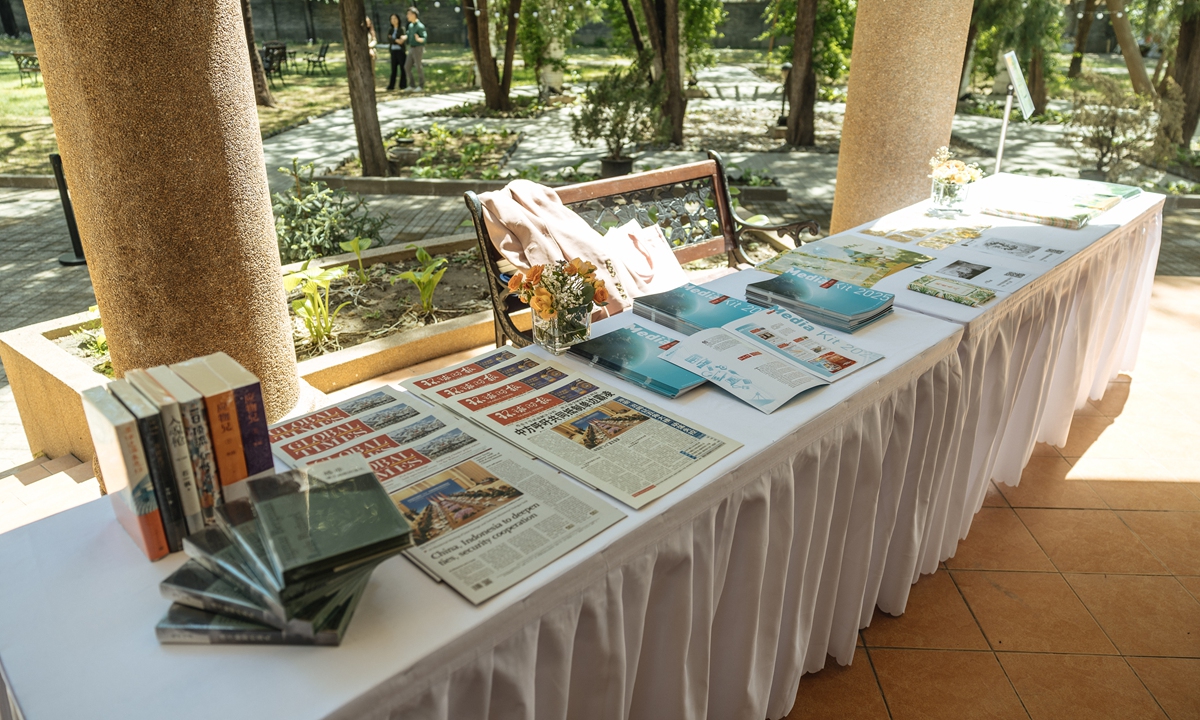
Global Times newspapers and "Spring Reading" promotional materials Photo: Li Hao/GT


